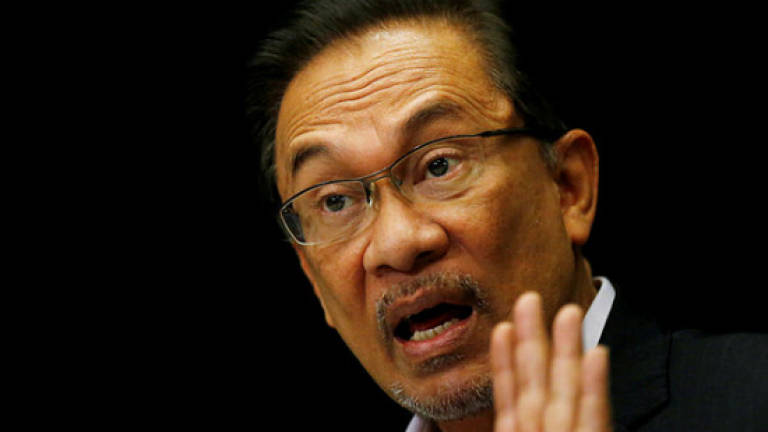Anwar and family allowed to refer legal questions to Federal Court

PUTRAJAYA: Datuk Seri Anwar Ibrahim and his family were allowed by the Court of Appeal today to refer legal questions to the Federal Court to decide on whether the decision-making process of the Pardons Board over royal pardons could be challenge in court.
A three-man panel of the Court of Appeal chaired by Justice Datuk Rohana Yusuf set aside the decision of the High Court's dismissal of their application to refer two question of law to the Federal Court and directed the High Court to make the reference to the Federal Court.
Justice Rohana also reinstated Anwar and his family's application to seek for leave to commence a judicial review to challenge the Pardons Board's dismissal of his petition for royal pardon over his sodomy conviction.
Their application for leave to commence a judicial review was dismissed by the High Court in Kuala Lumpur on July 15 last year.
Justice Rohana also ordered the proceeding in the High Court on Anwar's application for leave to initiate judicial review be stayed pending disposal of the matter at the Federal Court and also set Feb 2 for case management at the High Court.
In her decision, Justice Rohana said the appellants (Anwar and his family) had met the necessary requirements under Section 84 of the Courts of Judicature Act 1964 to refer legal questions to the Federal Court.
She said the High Court judge erred in her exercise of discretion in not referring the questions posed to Federal Court. Also on the panel were Justices Datuk Seri Zakaria Sam and Datuk Mary Lim Thiam Suan.
Anwar, who was present in today's court proceedings, is currently serving a five-year jail term after he lost his appeal at the Federal Court on Feb 10, 2015 to set aside his conviction on a charge of sodomising his former aide Mohd Saiful Bukhari Azlan, 31, in 2008.
On June 24, 2015, Anwar and his family members - wife Datin Seri Dr Wan Azizah Wan Ismail and daughters Nurul Izzah and Nurul Nuha - filed the legal challenge against the Pardons Board's dismissal of his pardons petition earlier on March 16, the same year.
Earlier, Anwar's lead counsel N. Surendran had submitted that there was ambiguity in the law because two case laws which were applied by the High Court judge when dismissing Anwar's application were not correctly decided.
He said the two case laws treated the power of pardon as the sole prerogative of the Yang di Pertuan Agong.
Surendran said there was an amendment to Article 40 (1) (a) of the Federal Constitution in 1994 which stated that the Yang di Pertuan Agong was bound to accept the advice of the Pardons Board and that the Juraimi Husin vs Pardons Board, State of Pahang and Ors case law did not consider that amendment.
Senior Federal Counsel Suzana Atan argued that the Yang di Pertuan Agong had the sole power to decide on clemency and that he was not bound to take the advice of the Pardons Board.
She said that there was no decision made by the Pardons Board that was amendable to judicial review. — Bernama